Join us at our latest learning event. We’ve teamed up with Matter of Focus for our latest webinar, ‘Taking a trauma-informed approach to quality and impact.’
Live webinar: Wednesday 13 November, 12.30–1.30pm (GMT)
In this webinar, you can find out more about how we developed a trauma-informed approach to quality and improvement. Members of the Future Pathways team will talk about our integrated approach to impact evaluation, quality measurement and service improvement.
Join Sarah Morton (Director, Matter of Focus) in conversation with Flora Henderson (In Care Survivors Alliance Director), Louise Hall (Impact and Evaluation Lead, Future Pathways), and Carole-Anne Roger (Quality and Improvement Manager, Future Pathways) about our journey and what we’ve learned.
- Gain insights into developing a trauma-informed approach to quality and improvement.
- Discover how the OutNav approach can support data-driven service improvement.
- Hear practical strategies for effectively integrating impact evaluation, quality measurement and service improvement.
Our partnership with Matter of Focus
At key stages in our journey, Matter of Focus helped us build our knowledge and understanding by acting as an independent learning partner. In 2023, Matter of Focus helped us review our evidence and learn more about people’s experience of the service through a series of discussions.
Josie heard about Future Pathways through the Scottish Child Abuse Inquiry. When Josie registered with Future Pathways, she and her Support Coordinator took the time to get to know each other and build a relationship.
“I didn’t have to hide or hold anything back. They were so understanding. They understood exactly what I had been through. It was as if I had known them for years.”
Together, Josie and her Support Coordinator explored different types of support.
“They would keep in touch. They would offer support. Anything of interest to me, they helped in any way they could.”
Josie had been through many life challenges, and she knew that getting the right help was important for her. Future Pathways supported Josie to access counselling support.
“I looked forward to going to the counsellor every week. They helped me see that, to me, I was not worthless. I talked truthfully about everything for the first time.”
Being completely honest with the counsellor was transformational. Before accessing counselling, Josie had always bottled up her feelings. Counselling helped Josie consider how she thought about herself and to address how her feelings of shame had prevented her from accessing support or opening up to people. Counselling helped Josie see how important it was for her to be truthful with the people in her life.
“Before, I had to hold it in. I never spoke about my past to my kids. I was embarrassed. The stigma of being in care meant people thought you were trouble.”
Future Pathways also supported Josie to complete and publish her book, ‘Finally back to my routes’.
Josie had been writing for years. Through some of the most challenging experiences of her life, writing helped Josie to express herself. Josie never thought anything would come from her writing, but this changed when her daughter was diagnosed with breast cancer. Before passing away, Josie’s daughter encouraged her to finish her book. Josie was determined to finish her book for her children.
Accessing her care records helped Josie stitch together the story of her past. Josie also learned that she had a sibling she had never met before, and she was able to meet her.
“All of the story was in my records. Everything came flooding out.”
Josie would write for hours. Future Pathways supported Josie to finish and publish her book with Book Whisperers, a service that provides writing support.
“I surprised myself. It was a brilliant experience. I could get rid of all my anxiety and stress. I would just focus on writing.”
Josie is now a published author. She celebrated by organising a book signing event with family and friends. Writing ‘Finally back to my routes,’ enabled Josie to be completely truthful about her past with her loved ones. Her friends and family now know her as someone who is always laughing and joking.
“That old life is gone now. I love my life now. I am in a happier place. I’m more ‘me’. And my kids are so proud of me.”
At Future Pathways, we work collaboratively with our Delivery Partners. Our service model’s in-built flexibility allows support – and its accompanying impact – to evolve.
Here, Nell Glen, Partner Relationship Lead, describes our collaborative approach to working with Delivery Partners, and how this enhances support for people who access Future Pathways.
Since Future Pathways began, we have worked with upwards of 130 Delivery Partners, some of which we are still working with today.
Since the start of the service in 2016, we have developed and expanded with more staff and more Delivery Partners. As such, our commissioning processes have changed over time as we’ve learnt more about what facilitates effective support.
We’ve learnt that a collaborative and relational approach to commissioning brings trust, choice and flexibility to our outcomes-focused support. It also creates a network of support, knowledge and learning with Delivery Partners which, in turn, helps us navigate complexity and offer holistic support to people accessing Future Pathways.
We’ve also learnt that a collaborative approach to commissioning can, at times, be challenging to navigate for Delivery Partners and staff alike. For example, our collaborative report into impactful partnership working found that:
“Working in this way can be complex as it takes an investment of time to build trust, and most importantly a genuine commitment to collaborate and share power.”
Our approach has evolved, and we’ve had to adapt our approach over time so that it works in practice for everyone. One of Future Pathways’ aims is to take a trauma informed approach to all that we do, including our work with Delivery Partners. The changes we have made are underpinned by the 6 key principles of trauma informed practice: choice, trustworthiness, safety, empowerment, collaboration and cultural consideration.
Here you can read some examples of how we apply trauma informed principles to our work with Delivery Partners.
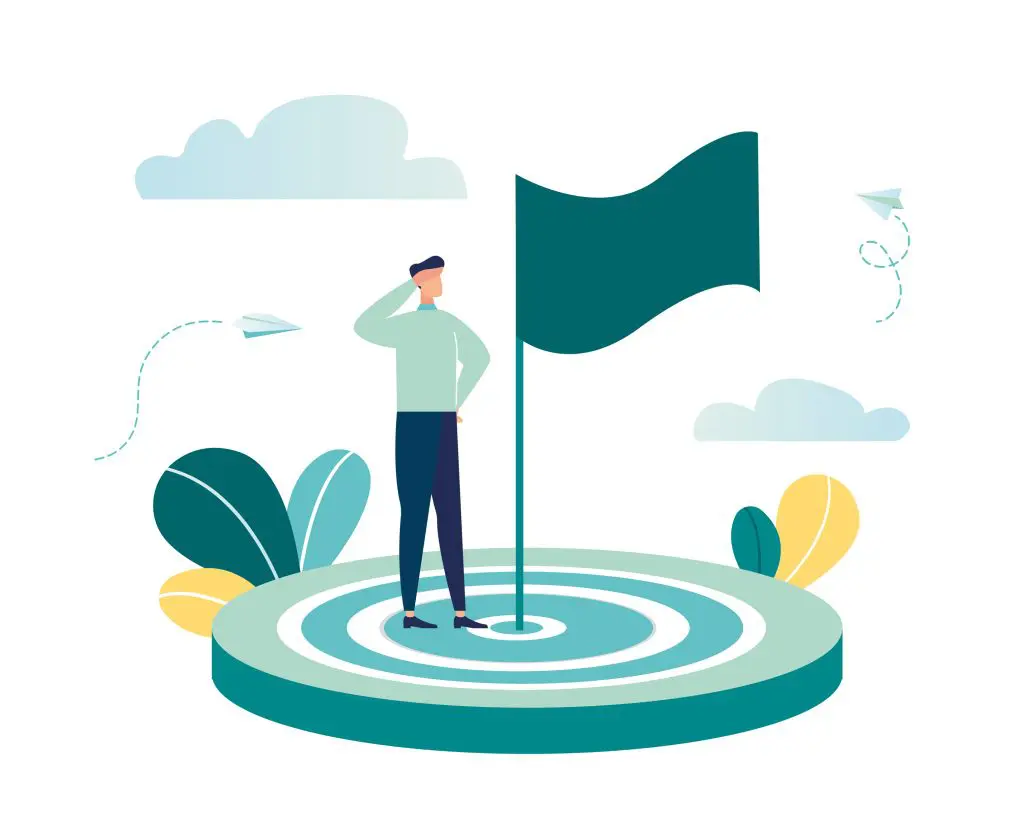
CHOICE
At Future Pathways we give the people we support a choice about who they work with, supporting them to select services that align with their desired outcomes. We support potential Delivery Partners to make informed choices about collaborating with us by sharing a new resource we have created about what working with Future Pathways involves.

TRUSTWORTHINESS
We have created more transparency around our commissioning approach and the way we set up support, through the development of our Delivery Partner welcome pack. The information in the welcome pack aligns with our internal guidance, so everyone is working from the same roadmap, promoting consistency.

SAFETY
The safety of our commissioning approach has been reinforced through clearer, more structured contracts and better-defined timelines for reviewing support. This provides more opportunities for the people we support, Delivery Partners, and Support Coordinators to understand progress towards goals, check whether support should be adapted, and to nurture a collaborative, safe relationship.

EMPOWERMENT
Future Pathways strives to empower people we support by helping them identify supports which will help them to progress their own desired outcomes. This is made possible through the flexible, trusting and collaborative nature of the relationships between Future Pathways and our Delivery Partners.
We also empower Delivery Partners to help us shape our collective support by inviting them to participate in focus groups, evaluations and other collaborative projects, such as a recent project to refresh our complaints and resolutions policy.

COLLABORATION
We recognise the value and expertise of our Delivery Partners, and we want to work closely with them to best support people to achieve their goals. For example, our new approach improves the quality of reporting and creates a feedback loop directly with Delivery Partners. It also clarifies how we communicate with Delivery Partners, ensuring that we collaborate closely with our Delivery Partners throughout a person’s support.

CULTURAL CONSIDERATION
When we work with people, we must take into consideration the specific needs of people who have experienced abuse or neglect in Scottish care settings. We have designed our commissioning approach so that it balances structured support with the flexibility people need to engage with services.
As the changes we’ve made to our commissioning approach continue to embed we expect to see support continue to evolve, along with its accompanying impact.
We want to hear from you
We are always keen to hear from people we support, our Delivery Partners and our providers. You can give us feedback at any time during the year through our Feedback Form.
See the difference we make together
Our latest impact report, Pathways to Change, gives us greater insight into how we make a real difference, and where there is scope for improvement. View and download our full report, summary report and mini report.
Our latest Quarterly Report is now available to view. It covers our work from April to June 2024. It shows what we’ve learnt, and includes key stats and feedback from those who access Future Pathways.
What happened in Q4
58 people registered with Future Pathways.
8 people started working with a Support Coordinator
102 people accessed support from 39 Delivery Partners.
Who we worked with
The average age of people who registered with us was 48.
72% of people registered with us live in Scotland’s most populated areas.
How people felt
We received positive feedback from people we support, and we also received suggestions for how we could improve.
People shared that they felt Future Pathwyas understood and cared about them. Many people also shared that they felt able to trust Future Pathways.
“They listened – they cared – they supported me.” (Person supported by Future Pathways)
What people gained
People accessed a mix of different types of support in Q1. Many people told us that they feel able to access the support that is right for them.
Many people accessed support from our Delivery Partners, such as record search and psychological support.
Many people accessed support from our Discretionary Fund, such as support to make their home feel safe and comfortable, and to explore their interests.
People also accessed support to link up with existing services, such as social work and healthcare.
What changed for people
People shared what changed in their life after accessing support from Future Pathways.
“They helped to make my day to day living easier.” (Person supported by Future Pathways)
What difference we made
People shared the impact of their work with Future Pathways. Some people gave us feedback that, now, they feel more hopeful about their future.
“You have a way of showing that there is a way forward. [The support] is giving me my life back.” (Person supported by Future Pathways)
Our full report features further infographics, feedback and a breakdown of our financial spend.
Marie Fagan has been working in specialist cleaning since 2007. She is the Managing Director and founder of MD Cleaning. Based in Shotts, the company has 13 staff.
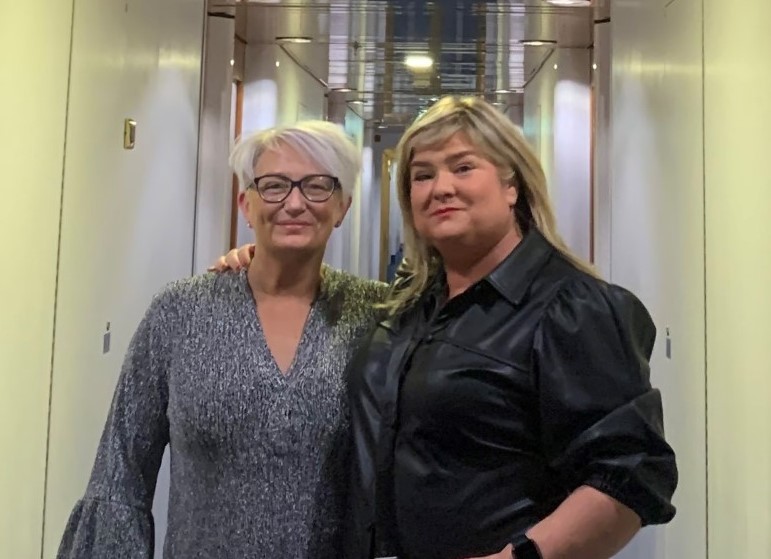
How did your partnership with Future Pathways start?
About five years ago, Future Pathways reached out to me. We helped them with a flat in Edinburgh. It gradually grew from there and eventually we started cleaning properties in Glasgow, which we still do. We now do about five per week for Future Pathways.
What happens when you start with a new client? Is there a process?
We always like to meet the clients first, to build a rapport up with them: to make sure that they’re not feeling uncomfortable, and that they know we’re not there to judge, things like that. Then we try and involve the clients as much as we can. In that first consultation, we’ll make a plan for where they want to start first.
Then we normally don’t work any more than four hours per session, or six hours at the most, because it starts getting a bit too much for the clients. But we’re very good at judging that. We’ll know that they’ve had enough for today, and we’ll go, and then we go back the next week. We usually clean each property once a week.
Depending on the client, we might give them a wee task to do for us before we come back the next week. Or we just tell them just to just leave it and we’ll pick up where we left off the next week. It just depends on the person: everyone’s different, so you judge what’s best with each person.
So your service is a lot more than the actual cleaning?
Absolutely. It’s really about understanding. Empathising with the client, and understanding when they want you to stay and when they want you to go.
But in other ways we treat clients just as we would treat any other person. We chat away to them while we’re working. We try and involve them. Or some people prefer to just sit and chat to us, so we let them do that. Because for some people, sometimes the company is just as helpful as the cleaning.
“It’s really about understanding. Empathising with the client.”
They’re always, always, always delighted with the service. Some of them are in awe, because it had just got so much that they just thought there was no way to fix it. Then we work for four hours, and we do loads and loads of stuff, and it just gives them a great spur on.
And we feel great when we finish too, because we can see a difference in the clients and their mood.
How long do you work with each client?
Usually, there’s a contract made first. At that first consultation, we can assess the property and we put a plan in place on how long we think it’s going to take for us to get the house done. It could be one four-hour session, it could be weekly sessions for several months. Again, it all just depends on the individual in the house.
For example, if someone doesn’t really have organisations skills, we can go in a couple of hours a week and teach them how to clean. We can teach someone how to look after their house, which is great.
How do you apply the principles of trauma-informed practice in the work that you do?
They key thing for us is to empathise with people, really. Their frame of mind is a priority over the cleaning, no matter what day we go. We do get a lot where we can go to the door and they don’t let us in, or they cancel just before we go, or they cancel the night before. We don’t push the fact because obviously, they don’t want us in that day, so that’s fine.
It’s really just treating the person as a human being, and as an individual who has particular needs and limitations, like all of us do.
“I find that with all the Future Pathways Support Coordinators that we speak with, they feel the same way we do. It’s not just a job to them.”
You’ve been quite close partner with Future Pathways for a couple of years now. Does the relationship work for you?
They’re brilliant. They’re great. We work with the Support Coordinators, and bounce off them as well.
So we’re very grateful that we’re able to help people registered with Future Pathways, and we’re always happy to.
It seems that MD Cleaning and Future Pathways are very closely aligned in your approach and your values?
I find that with all the Future Pathways Support Coordinators that we speak with, they feel the same way we do. It’s not just a job to them. They do genuinely care for people and want to help. Same as us.
Yes, it’s a job, but we genuinely like to support people.
Kirsty is really interested in trying different things that can benefit health and wellbeing. Here, she shares some examples of the things she has tried during her recovery journey.
Bee keeping
Kirsty spent time with bees when she suffered from PTSD (Post-Traumatic Stress Disorder). She found that after only 30 minutes with the bees, she felt very relaxed. She then spent time reading about how bees can help people. She found out that the sound of bees can be helpful to people with PTSD or anxiety and can help to support wellbeing. This is because the bees’ beating wings create a vibration that can have a calming effect.
To find out more about beekeeping, visit www.bbka.org.uk.
Meditation
“I started meditation, something I found extremely difficult. My panic attacks would result in me being unable to focus on my breathing to get into a meditative state. I persevered and eventually was able to use meditation as a way to calm my mind.
I encourage anyone experiencing difficulties coping in life to try and meditate. Even baby steps are still steps. I can guarantee you will find your peace. You will learn to love yourself and not care what the rest of the world thinks of you, because only your opinion will matter.”
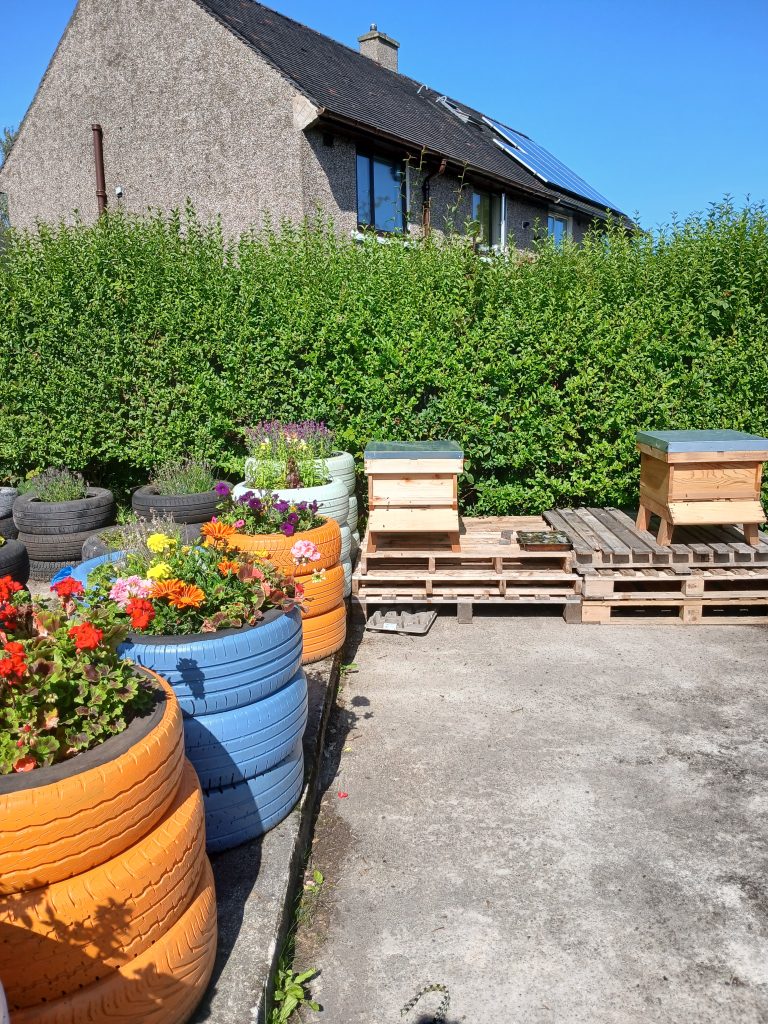
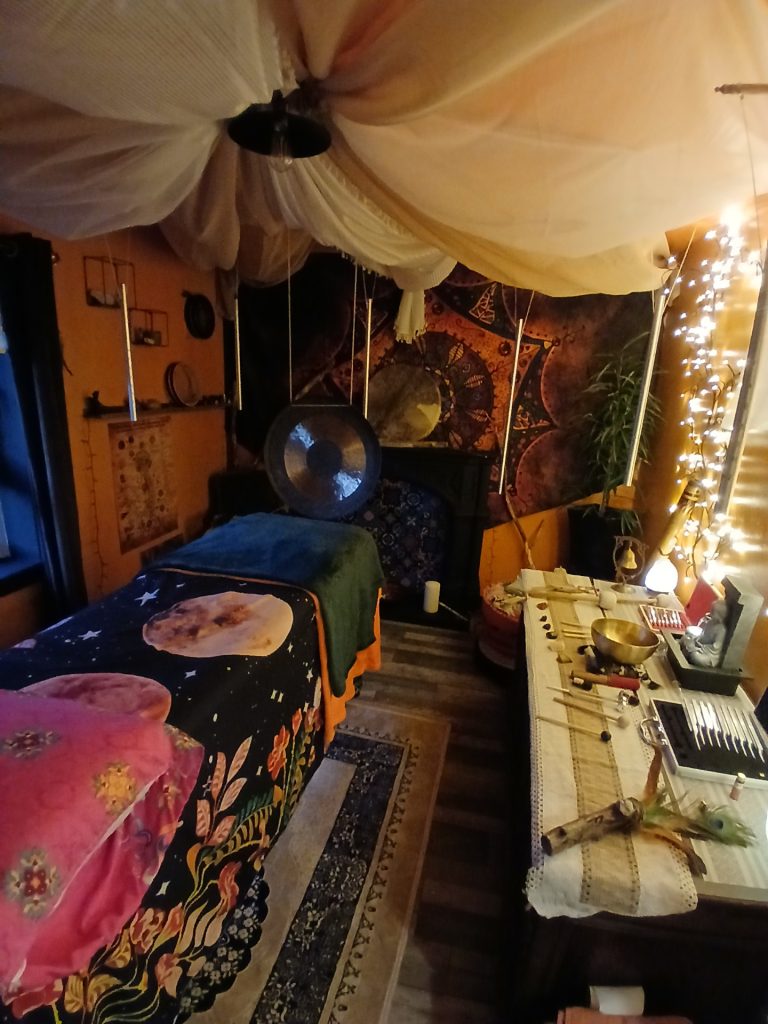
Above: Kirsty’s beehives and her sound therapy room
Sound therapy
Sound therapy uses vibrations. Kirsty uses instruments like drums or gongs that make powerful vibrations. This means she can feel the vibrations in her body.
‘It opens up the body like a ripple effect of a stone in a pond.’
She also uses something called binaural beats. This is when you listen to two tones with slightly different frequencies at the same time.
“These methods sync both hemispheres of the brain and take you to deeper levels of meditation. This led me into digging further into the science behind frequencies and vibrations. I like to understand the science behind why these methods work.
Seeing fast results, these methods allowed me to meditate and open myself up to the traumas in a calm, non-evasive way. Almost not even knowing that this is what I was doing. I was able to pick away at traumas without even really feeling them. Able to look at them without emotional attachment. Healing myself bit by bit without having to face the enormity of it. I began to really get to know who I was behind all my usual barriers.”
“One day you will get there, and it will be yourself who gets you there.”
Sharing her learning
Kirsty wants to create a place where people can try sound therapy, meditation, bee-keeping, or even all three.
“If I can give something back, this is what I want to give back:
- a way for people to heal without having to return time and time again to professionals
- to let people know that they can do this themselves
- and to give people the experience and the tools to walk away after a couple of sessions equipped with the knowledge of how to self-heal.”
Next steps
“My plan is to start my own business using instruments that create sound waves and vibrations that resonate with the mind and body. To take people through meditations, safely showing them every step of the way how and why to do this. Ensuring that they don’t need more than a couple of treatments maximum so they can take it away, practice it and find what works best for them and show others how to heal themselves.”
Kirsty is also working with Graham Wells who runs GroWiser. GroWiser is a financial coaching service and one of our Delivery Partners. Graham is helping Kirsty think about her business plan.
“He’s more than a financial coach – he’s like a life coach. Not just immense help with finances but also encouraging and cheerleading my ambitions.”
You can read more about Kirsty’s experience of recovery at: www.future-pathways.co.uk/kirstys-experience
You can find out more about GroWiser in our Meet the Partner interview at: www.future-pathways.co.uk/meet-the-partner-graham-wells
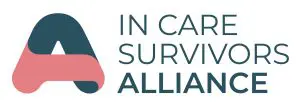
In Care Survivors Alliance has a new website www.incarealliance.scot
The In Care Survivors Alliance (or ‘Alliance’ for short) delivers two services – Future Pathways and Redress Support Service.
The Alliance is made up of four organisations. These are Glasgow Psychological Trauma Service (NHS Greater Glasgow and Clyde), Health in Mind, Penumbra Mental Health and the Scottish Government.
On the new website, you can find:
- Information about the organisations that make up the Alliance
- A timeline covering key dates in the development of the Alliance
- Information about the Alliance’s vision, purpose and values
- Members of the Alliance Team
We hope you find the new website helpful.
Daniel had a serious accident over 10 years ago and was paralysed down his right side. Here, Daniel shares how exercise improved his physical and mental health, and helped him on his recovery journey.
I was determined to get back functioning and active again. I went to physiotherapy. They used to come and get me to go to my appointments. I was ashamed of people seeing me the way I was. People made fun of me.
Eventually, I started doing exercises in the house and I kept on doing them every day. I did butterflies and half butterflies, shadow boxing and knee bends. I did 20 repetitions each, twice a day. This helped with my counting as well.
I started feeling a bit of a difference, could see I was getting stronger.
During this time I was also in recovery from addiction and dealing with lots of personal issues but I kept exercising all the way through. Over time, I was able to use a mobility scooter to get back out and about.
Eventually, after Covid, and when I started with Future Pathways, I also started going to the local Recovery Cafe. We were all talking about the nervous system and how exercise is good for improving it. From there I thought I would give swimming a try.

Then, some friends encouraged me to do a round of golf. I’m now able to hit every single ball. There’s been people encouraging me and I really appreciate that when I look back. I try to encourage other people in recovery to go swimming and to take up golf and other exercise because of how it’s helped me.
I enjoyed doing all of these things but I also wanted to be able to do something on my own. I wanted to go out when I felt like it to exercise and not be dependent on recovery groups, or other groups or other people.
I wanted to have the freedom to exercise like everybody else.
I’d starting thinking about cycling when I got my mobility scooter. Once I felt stronger I bought a bike but I kept falling off because of my balance. I talked to my Support Coordinator at Future Pathways about options for cycling and we thought about a trike/recumbent bike. This is a bike with three wheels that you lean back on instead of sitting upright.
We went through to Edinburgh to try some out… I thought to myself, “this is it, this is what I want, this is what I’d like to do”. It made me feel good, gave me a sense of freedom and enjoyment.


The day I got the bike, I cycled back to the train station on it and my Support Coordinator walked alongside me. I was a bit anxious getting it on to the train. I couldn’t believe it. I really couldn’t believe it. Things like that don’t happen to people like us. Anything good, people usually take it away from you.
On my street on that day, people from my local town were giving me encouragement, smiling and laughing with me. That was different – laughing with me and not at me. People were happy for me. People have told me I’m a miracle. I’ve walked from Bathgate to Whitburn – that’s because of building up my strength on the bike. I want to keep building up my walking too.
The bike has been a godsend. I’ve done over 200 miles on it now. I’ve been to Bathgate and back. Whitburn, Blackburn, Bathgate, Armadale and back to Whitburn. I’ve also been to Harthill from Whitburn, up to Fauldhouse, Longridge and back to Whitburn. When I’m out I see people smile and cars going by give me a wee toot.
It’s not just made a difference, it’s made a life-changing difference.
My physicality is developing, my confidence has grown and I’m hoping it will grow more. I find it hard to talk to people. I’m practicing this and sometimes the bike helps with having something to talk about when I’m out.
I think it helps with different things and it’s given me ideas for doing more. I’d like to do a Glasgow or Edinburgh cycle to raise money for a parachute jump. It’s got me thinking of what else I can do. I want to get other people into recovery. Maybe even volunteering one day.
I’m looking for contentment and to be stress-free. I’ve been in trouble all my life. The bike puts a smile on everybody’s face – that makes me feel a bit happier as well.
This article is a shorter description of Daniel’s experience. You can read more about his journey in the full article at www.future-pathways.co.uk/daniels-experience
Rikki shares his experience of opening up.
On a Tuesday morning in June, I was visiting Carlisle Cumberland University Hospital to have a blood pressure monitor fitted. As I sat waiting for the ambulance staff to come and take me to the cardio-respiratory investigations, Chris saw me and made the sign of ‘it’s OK to talk’.
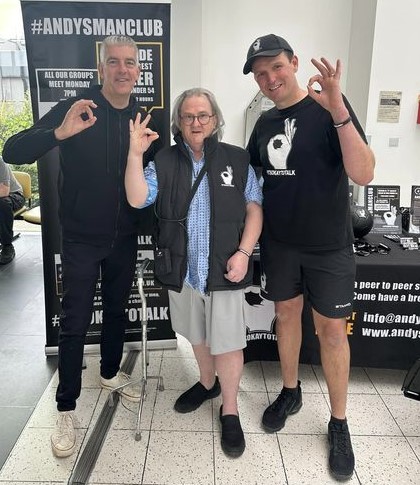
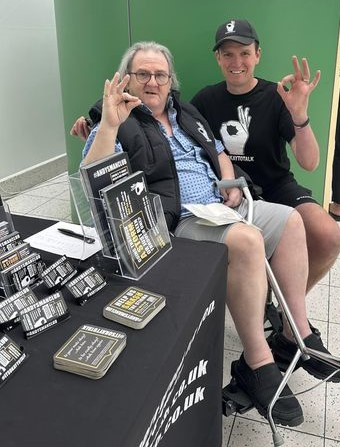
Chris is from Andy’s Man Club. They are a charity that offers support groups. The groups help men with their mental health through the power of conversation. I’ve been attending their online meetings every Monday since leaving hospital at the end of March. Having a stroke made me angry and frustrated. What’s my life going to be like now? Assisted to walk, dress and even to wash, with nursing staff coming to my house twice a day.
Of course I had dark thoughts going through my head.
I have had tougher times in my life. I could still talk and walk and decided to find out more about Andy’s Man Club. I thought I would give it a try and see if I could take a leap into understanding my anger.
I set up my computer and joined a 2-hour Zoom call with 14 other men, opening up to one another. There were lumps-in-my-throat moments. I was only thinking ‘what had I done to deserve what had happened to me?’ I felt so embarrassed and scared, but I spoke with a dry throat and a twisted mouth and no teeth. And I just let everything out.
Yes, it was the taste of my hot tears that flowed down my crooked cheeks. And then I began to embrace being listened to and not feeling lonely. There were so many thumbs up and applause hands. I knew that I could get through what the world was going to throw at me.
It is 6 months since my stroke and I take everything that life throws at me and smile, and that little voice in my head says, ‘You’ve got this Rikki.’
Andy’s Man Club offers free peer-to-peer support groups for men across the United Kingdom. Groups are both face-to-face and online. They aim to end stigma about men’s mental health through confidential, judgement-free spaces where men can open up. Find out more at www.andysmanclub.co.uk
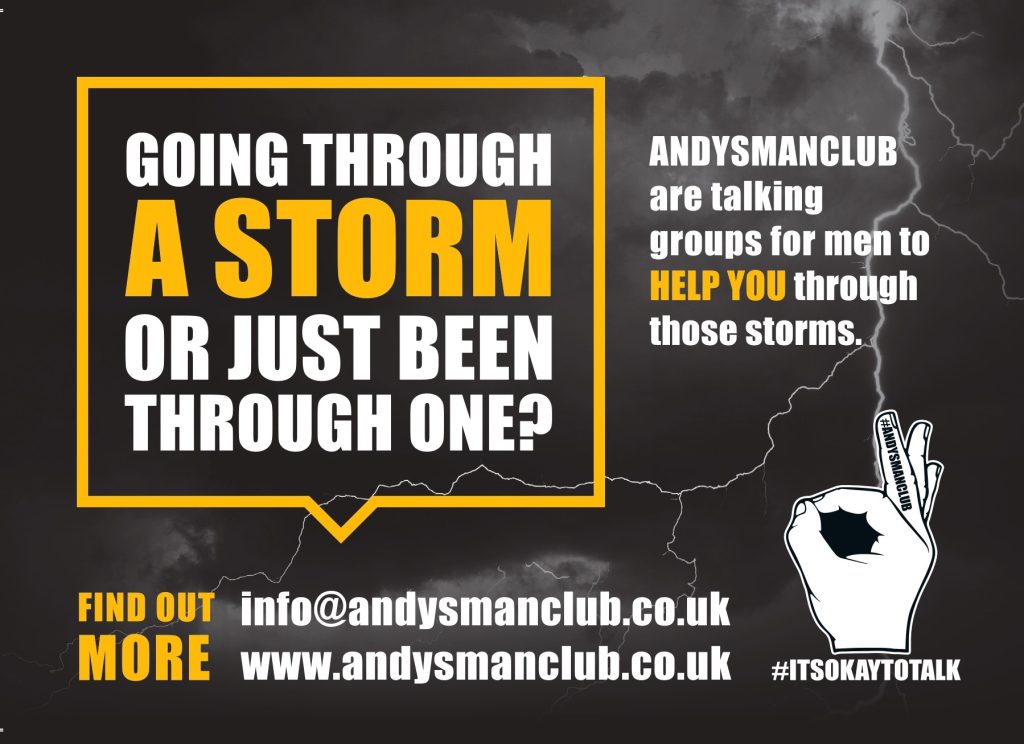
We want to hear your feedback about Future Pathways.
Hearing feedback from people registered with us and services we work with is very important to us. In our most recent impact report, Pathways to Change, we took a closer look at the feedback we received over the last year. You can read the Pathways to Change report here.
Looking at people’s feedback for this report helped us measure our progress by considering key questions such as:
- How do people feel when they engage with us?
- What do people learn and gain when they engage with us?
- What do people do differently?
- What difference does this make?
This helped us to reflect on what works about our support and to see how we could improve. We learned that our approach to support can make an impact. For example, many people shared that they feel safe and able to trust Future Pathways. We also learned that we could do more to hear from the people who are on our waitlist.
In Pathways to Change, we also looked at the feedback we received from our Delivery Partners. This helped us think about how we work with Delivery Partners. For example, through working with us, many Delivery Partners learn about the challenges and needs of people registered with Future Pathways.
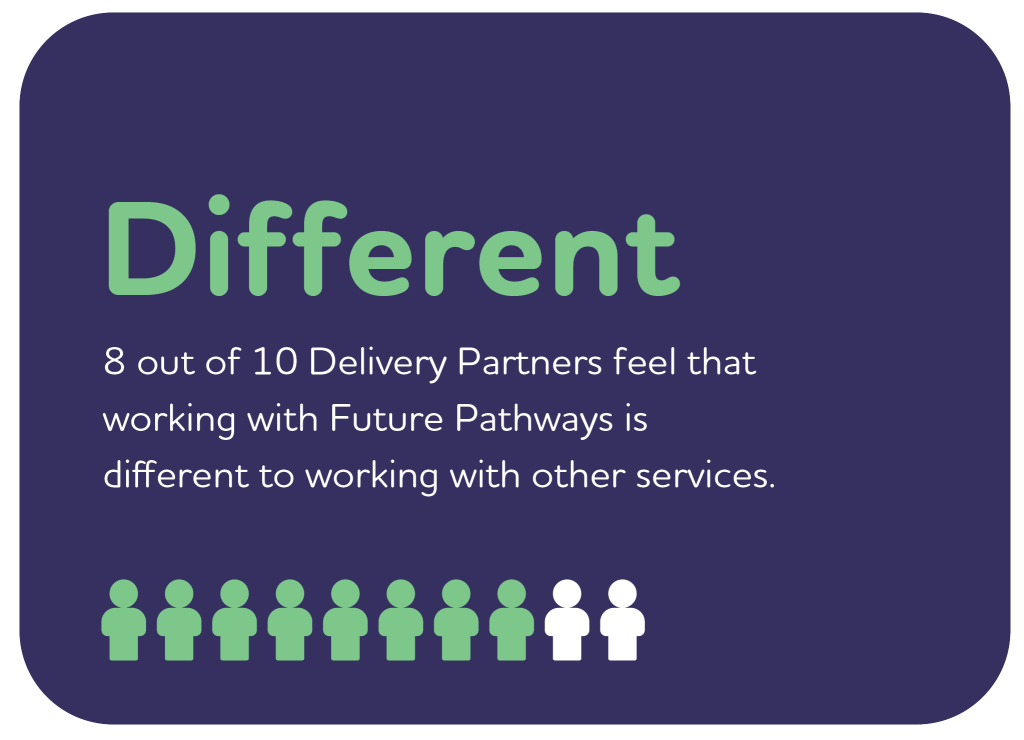
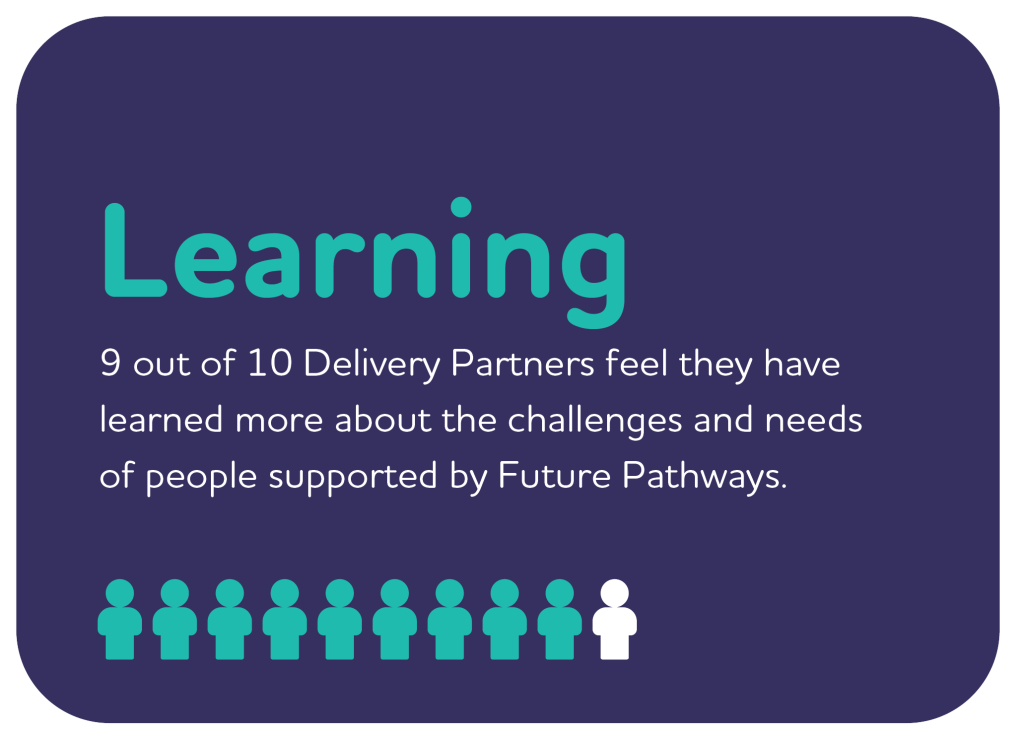
There are many ways you can give us feedback.
Delivery Partner questionnaire
If you are one of our Delivery Partners, you can give us feedback through our Delivery Partner questionnaire. This is for service providers that we commission support from. We are particularly interested to hear about what has changed for you since you started working with Future Pathways. And about what you think about our new approach to commissioning.
You can take part in the questionnaire here.
The questionnaire is open until Monday 4 November 2024.
Online feedback form
We also have an online feedback form for anyone who wants to give us feedback. The form is open to:
- People registered with us who are waiting for support
- People who are accessing our support
- People who are no longer accessing our support
- Existing services (such as third sector and statutory services or professionals)
- People who want to give feedback on behalf of someone registered with us
You can access the online feedback form here.
We want to thank everyone who has given us feedback so far. It has helped us learn more about our approach and the difference we make. And it is helping us to improve our service over time.
